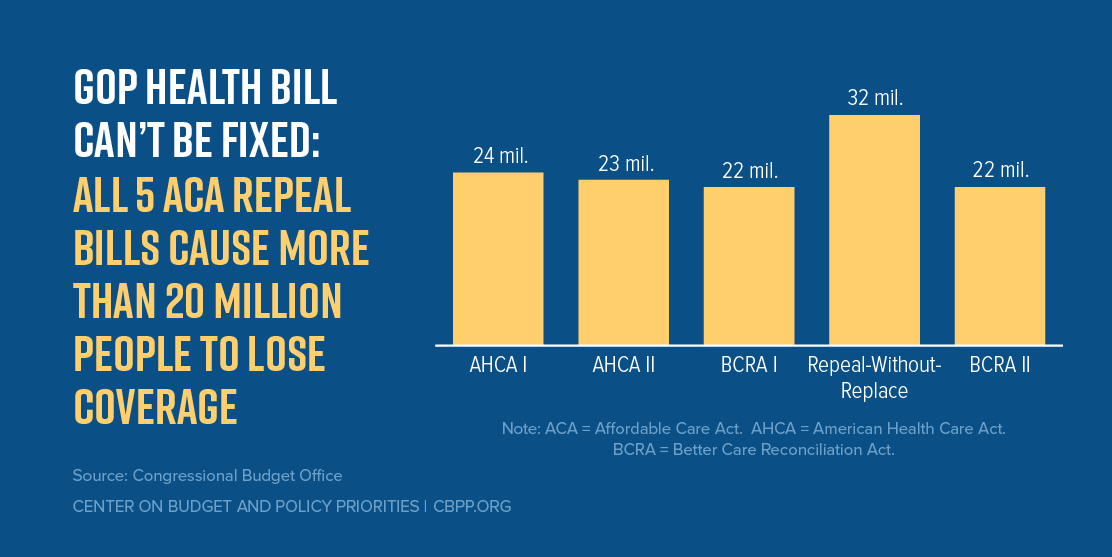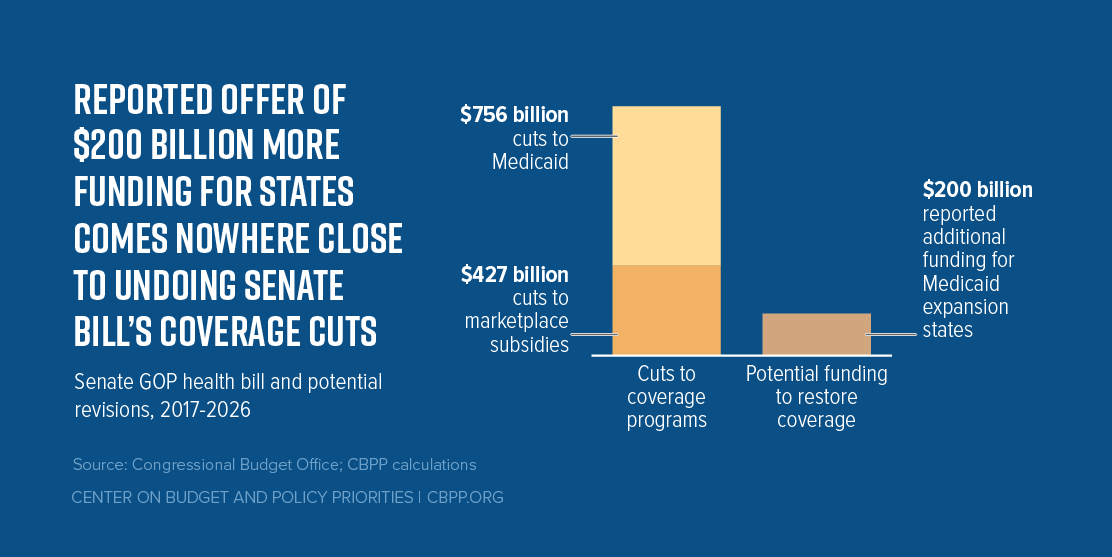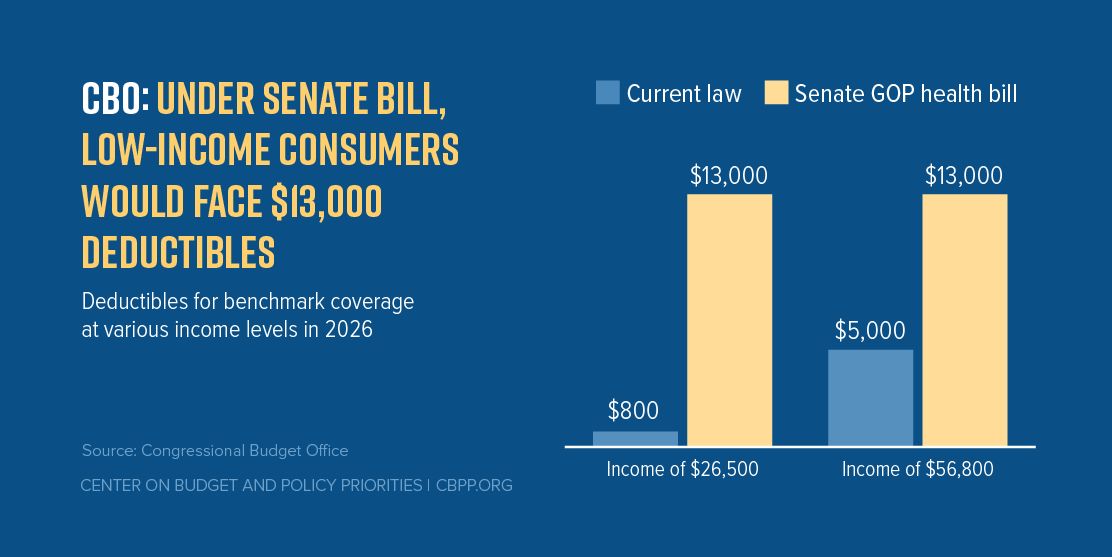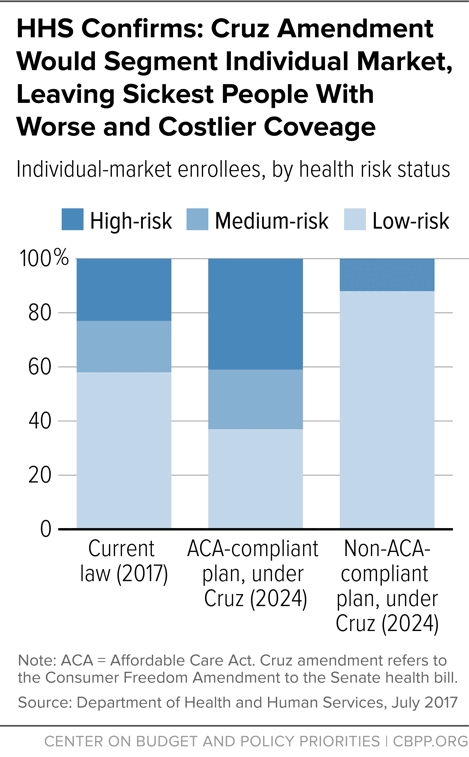BEYOND THE NUMBERS
As Senate Republicans continue to pursue a bill to repeal the Affordable Care Act (ACA), five points are central to the debate:
1) The latest Senate bill has the same core flaws as the previous versions that a number of Senate Republicans have said they can’t support.
The Congressional Budget Office (CBO) analysis of the revised Senate health bill (the Better Care Reconciliation Act or BCRA) shows that the latest changes addressed none of the bill’s major flaws.
Like the four previous House and Senate GOP health bills, the bill still causes more than 20 million people to lose coverage, still massively cuts federal Medicaid funding, still slashes subsidies for individual market consumers, and still eliminates crucial protections for people with pre-existing conditions.
2) The Senate health bill can’t be fixed. No senator should fall for claims that it has been.
The new CBO analysis also shows that the Senate bill can’t be fixed: there just aren’t enough resources to do it. To save their bill, Senate leaders are reportedly offering $200 billion to win the votes of senators from states that expanded Medicaid under the ACA, presumably to supplement private coverage for those who would lose Medicaid expansion coverage under the Senate bill. No senator should fall for it — $200 billion is only 17 percent of the bill’s $1.2 trillion in health coverage cuts.
Centers for Medicare & Medicaid Services Administrator Seema Verma argues that states can use federal Medicaid waivers to undo the bill’s harm. That’s an even weaker claim, since waivers must be budget neutral: they can’t restore federal funding that the President and Congress have cut.
3) The bill’s proponents are making false claims about its impact.
Some Republican senators, including Majority Whip John Cornyn and Bill Cassidy, claim that the bill’s extension of premium tax credits to people with income below the poverty line will enable people in the Medicaid “coverage gap” that’s created by their state’s failure to expand Medicaid under the ACA to get affordable private coverage. But CBO refuted that claim, finding that “few low-income people would purchase any plan.” That’s because even with the tax credit, people living in poverty couldn’t afford the insurance available under the Senate bill, which CBO estimates would have $13,000 deductibles.
4) And the Administration is using biased analysis to hide the bill’s impact.
CBO’s analysis of the Senate bill didn’t cover the Cruz amendment, which would almost certainly increase premiums for comprehensive plans. In an apparent effort to obscure the amendment’s impact, the Department of Health and Human Services (HHS) released a presentation that made flawed “apples-to-oranges” comparisons and ignored key facts. But even that presentation confirmed that the bill would cause healthier and less-healthy people to gravitate to different plans, which would likely raise premiums for people with pre-existing conditions.
5) Further Changes Are Likely, But Can’t Undo the Harm.
Senate Republican leaders will likely claim that the changes described above, or new changes that they propose in the coming days, have fixed or will fix the bill’s core flaws. But we’ve seen this before. First in the House, and now in the Senate, Republican leaders have revised their bill and claimed that the revisions addressed its core flaws — and then CBO show that the claims are false.
The Senate, therefore, must not consider any bill until CBO issues a comprehensive analysis of that specific bill’s impact on coverage and affordability, incorporating the effects of the Cruz amendment and any other future changes.




